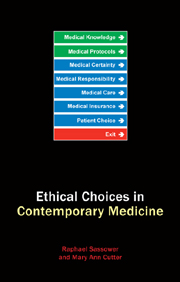1 - The predicaments of contemporary medicine
Summary
The debate over the nature and definition of medicine is as old as our recorded western history. Eighteen hundred years ago, Galen defined medicine as an art (techne) and tried to distinguish between the empiricist and rationalist trends in the field. How much should experience (collected empirical data) influence the practice of medicine? Should reason (rational and logical deduction of effects from a set of causes) play an important role in the theoretical construction of a medical model? Depending on how these two questions are answered, we will have a better idea about how to train students of medicine. These questions have reappeared at the dawn of the twenty-first century because of our increased reliance on technoscience, the confluence and interwoven emergence of scientific theories and models and technological instruments and innovations.
This reliance, as we shall explain in the second section, is not limited to specific breakthroughs in biochemistry or genetics, but is pervasive in the atmosphere in which we come across public health issues. Questions about medicine as art and as science, as the third section will illustrate, are also tied to changing public expectations with regard to the promises of democracy and capitalism. And finally, the questions raised and answered here bring together a multidisciplinary or integrative approach to the widening field of medicine in the twenty-first century.
- Type
- Chapter
- Information
- Ethical Choices in Contemporary MedicineIntegrative Bioethics, pp. 13 - 37Publisher: Acumen PublishingPrint publication year: 2007

